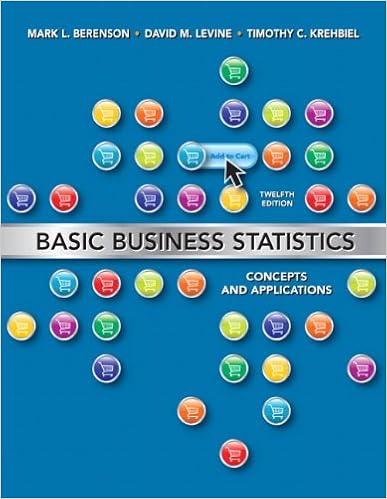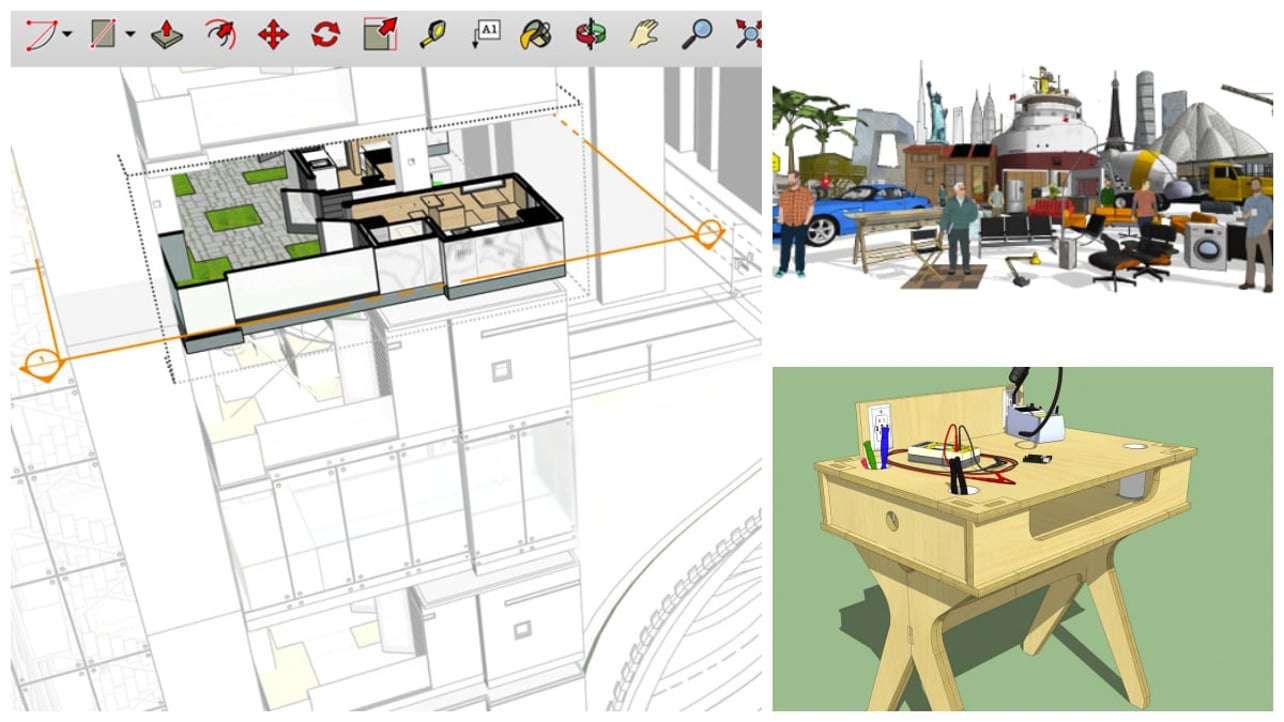Sketchup Plugins. Creates helix tubing along a pre-picked curve in SketchUp. Use the dialog to set numerous parameters and options. You can use this extension to create helical shapes as springs, cables, seams, among other. Makes parametric shapes. Single menu entry (by default in Tools Fredo Tools.) Single contextual menu; Single toolbar, with control of the icons displayed; Quick Launcher; Also, only a small part of the plugins is loaded at Sketchup startup (only the menus). The rest of the code is loaded the first time you launch the plugin.
As mentioned previously, SketchUp 2014 has a new scheme for installing plugins. Trimble SketchUp now hosts a repository for SketchUp plugins that one can access and install directly from SketchUp Make or Pro. There is an Extension Warehouse that can be called by clicking on the button (below) located on the toolbar. Here are some recommended extensions as an update to those previously assembled here.
- SketchUp STL – this plugin is needed to import and export STL files. There are several STL plugins, but I suspect that one written by the SketchUp developers would be the best for integrating with SketchUp. Importing is done by selecting File >> Import >> selecting STL file format, and exporting is done by selecting File >> Export STL. This plugin is available directly from the Extension Warehouse and can be downloaded by visiting http://extensions.sketchup.com/en/content/sketchup-stl , logging in, and downloading.
- FixSolid Version 1.7 – this plugin helps fix errors in a design that prevent it from being a closed shell (a.k.a. being “manifold”) which is a requirement for 3D printing. Unfortunately, this plugin has not yet been submitted to the Extension Warehouse so it must be downloaded from http://forums.sketchucation.com/viewtopic.php?f=323&t=33471&hilit=fixsolid&start=15 )
- Solid Inspector 1.2.0 – this plugin is somewhat complementary to FixSolid in that it helps the designer identify the errors that can keep an object from being able to be 3D printed, but it cannot fix them, itself. Solid Inspector is available directly from the Extension Warehouse at http://extensions.sketchup.com/en/content/solid-inspector .
- MakeFaces Version 1.4 – this plugin helps make a face using the edges as long as they are coplanar. It has not been submitted to the Extension Warehouse but can be downloaded from http://www.smustard.com/script/MakeFaces . Please note that it requires another plugin from Smustard called Progress Bar.
- Stray Lines Version 1.0 – this plugin erases dangling lines to clean up a design. This plugin has not been submitted to the Extension Warehouse but is available at http://www.smustard.com/script/StrayLines .
- Unfold Tool – this plugin will unfold a 3D object into a flat piece à la origami. It has not been submitted to Extension Warehouse but is available at http://sketchuptips.blogspot.com/2007/08/plugin-unfoldrb.html .
- CLF Shape Bender 0.6.1 – this plugin allows bending complex shapes around curved surfaces or edges. It’s on the Extension Warehouse at http://extensions.sketchup.com/en/content/clf-shape-bender .
- Selection Toys 2.3.6 – this plugin has several tools for carefully selecting unique sets of objects. It’s available at the Extension Warehouse at http://extensions.sketchup.com/en/content/selection-toys .
- Molecule Importer – this plugin allows importing .MOL molecular model files into SketchUp for using SketchUp tools to enhance the model. It’s available at the Extension Warehouse at http://extensions.sketchup.com/en/content/molecule-importer .
- Center Point Version 1.20 – this plugin allows you to create a point at the center of the object or objects selected. It is not available from Extension Warehouse but is at http://www.smustard.com/script/CenterPoint (we are evaluating an alternative plugin called Guide Tools available at http://extensions.sketchup.com/en/content/guide-tools )
- JF Sphere Tool – this plugin allows one to create a sphere much more easily than trying to do it by hand. It’s not at the Extension Warehouse but is at http://www.woodworlds.com/downloads/func-finishdown/187/ .
- Shapes Tool 1.1.2 – this plugin is like the spheres tool but can do other shapes. It’s available at the Extension Warehouse at http://extensions.sketchup.com/en/content/shapes .
- KML Tools Plugin 1.4.11 or try the 2.0 beta – this plugin allows import of KML files. This plugin is not at Extension Warehouse but is available at http://sketchucation.com/forums/viewtopic.php?t=38009 .
- Draw Helix Version 1.3 – this plugin helps create a helix which is very tedious to do manually. It’s not available through the Extension Warehouse but is at http://www.cad-addict.com/2009/07/sketchup-plugins-how-to-draw-helix-or.html .
- SP Gears – this plugin helps create various toothed gears. There is nothing like it in the Extension Warehouse, but this one is still available at http://www.soliforum.com/topic/5564/$2/ .
PLEASE NOTE: As of publishing, the Extension Warehouse seems to require an account (free) to download extensions, both inside SketchUp and from a web browser. The unfortunate part is that there do not seem to be any error messages notifying you when trying to download a file when not logged in or if your session times out – it simply doesn’t download.
Installing UR CTLT-selected Plugins
In order to make the process easier for installing plugins for those in the University of Richmond community who will be using SketchUp through engagement with the CTLT and/or TLC, you may wish to follow the steps below.
- Install SketchUp 2014 Make or Pro if you do not have either one.
- Open SketchUp.
- Go to the Extension Warehouse using the icon on the tool bar shown below.
- Login or create an account with the Extension Warehouse (as mentioned above, the site doesn’t let you download extensions unless you are logged into an account and they do not warn you).
- Search for the Plugin Loader plugin (see http://www.alexschreyer.net/projects/plugin-loader-for-sketchup/ for more information about the tool including installation and use).
- Install the plugin into your SketchUp. You should now see a Plugins menu item between “Window” and “Help.”
- Download the SketchUpPlugins_URCTLTselected zip file that we created to be an archive of all the aforementioned plugins.
- Once downloaded to your computer, you will need to unzip (expand) it into a folder on your computer (the instructions depend whether you have a Windows PC, Mac, or other operating system – Google is your friend).
- Within SketchUp, click the Plugins menu item, then go to Plugin Loader, and finally click on “Load all plugins from a folder (RB)”.
- An instructional message will appear, just click OK.
- Browse to the folder that you created when expanding the zip file on your computer (from steps 7 and 8 above).
- Select one of the .RB files (such as SPGears.rb) and then click the Open or OK button (depending on your OS and web browser). You should get a message that the plugins were successfully loaded.
- Use the aforementioned plugins as much as you want! Please note that by following these steps exactly, you will need to follow them again each time you open SketchUp. If you are working from your own computer, you may want to use the install all the plugins so you do not need to load them every time you use SketchUp; however, you would need to download and install each one from the links above.
Installing in a Multi-User Environment
There are most probably additional steps related to setting plugins folders permissions for multi-user access and possibly editing plist files for Macs, but there seems to be a new wrinkle in SketchUp 2014 plugins that may cause issues. It seems that all plugins are installed as user plugins (installed in user’s home folder) rather than system-wide plugins. On a Mac, this means the plugins get installed in /Users/[username]/Library/Application Support/SketchUp 2014/SketchUp/Plugins rather than /Library/Application Support/SketchUp 2014/SketchUp/Plugins . In fact, there is no /Library/Application Support/SketchUp 2014/ folder even created. However, in the case above where we want to install the Plugin Loader plugin, I was able to get it to work for at least myself by creating the /Library/Application Support/SketchUp 2014/SketchUp/Plugins folder structure and then depositing the as_pluginloader.rb file and as_pluginloader folder (that are included in the as_pluginloader.rbz compressed file) into the /Library/Application Support/SketchUp 2014/SketchUp/Plugins folder.


Brings together a number of my standalone plugins.
- Single folder in the Plugins directory (Fredo6_FredoTools)
- Single menu entry (by default in Tools > Fredo Tools > ….)
- Single contextual menu
- Single toolbar, with control of the icons displayed
- Quick Launcher
- Also, only a small part of the plugins is loaded at Sketchup startup (only the menus). The rest of the code is loaded the first time you launch the plugin.
You can see a small example of what this plugin can do
Platform: Windows and Mac OSX
Language: English, French, Spanish Spain (by Oxer), Spanish Latin America (by Defisto), Chinese (by guanjin)
Menus: by default, it is installed in Tools > Fredo Tools…
Icon toolbar: Fredo6 Tools
by Sketchup Texture - Posted on Thursday, July 13, 2017
Sketchup Make Solid Plugin
